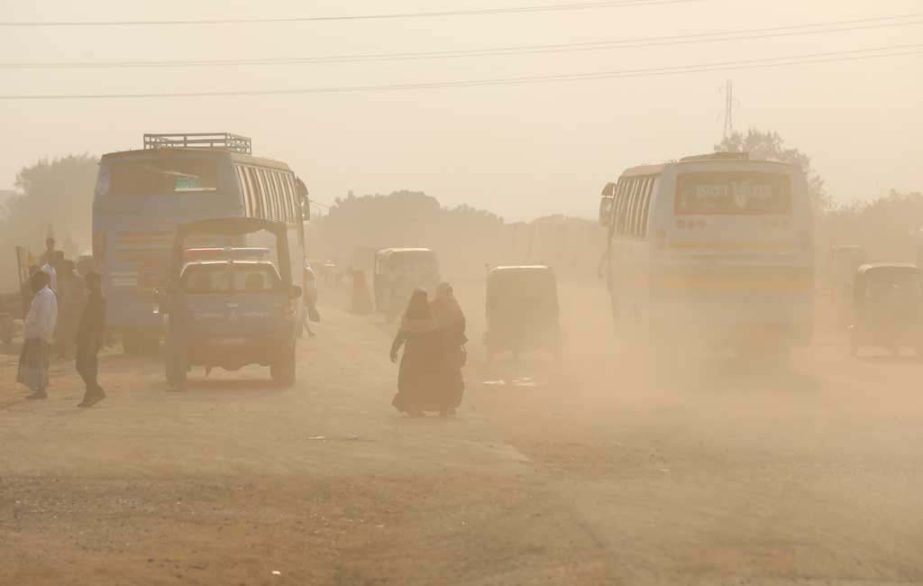
UNB, Dhaka :
The air quality in the capital city Dhaka was reported ‘unhealthy’ on Thursday morning as the AQI index hovered between 189 and 106 until around 11 am, according to a global air monitoring agency.
At 09:05 am Dhaka city was ranked the fourth worst among the world’s major cities with an AQI score of 189, said AQAIR, a Swiss company that constantly monitors air quality of the world’s major cities. But at 10:52 the air quality of Dhaka came down to 106, but still considered “unhealthy”
People, especially the sensitive sections, are advised to avoid going outdoors when AQI score remains between 100 and 200, according to AQAIR.
Pakistan’s Lahore (425), India’s Delhi (310) and China’s Wuhan (191) occupied the top three positions in the list of cities with worst air quality on Thursday morning.
Similarly, an AQI between 201 and 300 is said to be ‘poor’, while a reading of 301 to 400 is considered ‘hazardous’, posing serious health risks to residents.

AQI, an index for reporting daily air quality, is used by government agencies to inform people how clean or polluted the air of a certain city is, and what associated health effects might be a concern for them.
In Bangladesh, the AQI is based on five criteria pollutants — Particulate Matter (PM10 and PM2.5), NO2, CO, SO2 and Ozone.
Dhaka has long been grappling with air pollution issues. Its air quality usually turns unhealthy during winter and improves during monsoon.
A report by the Department of Environment (DoE) and the World Bank in March 2019 pointed out that the three main sources of air pollution in Dhaka “are brick kilns, fumes from vehicles and dust from construction sites”.
With the advent of winter, the city’s air quality starts deteriorating sharply due to the massive discharge of pollutant particles from construction works, rundown roads, brick kilns and other sources.
As per the World Health Organization (WHO), air pollution kills an estimated seven million people worldwide every year, largely as a result of increased mortality from stroke, heart disease, chronic obstructive pulmonary disease, lung cancer and acute respiratory infections.

